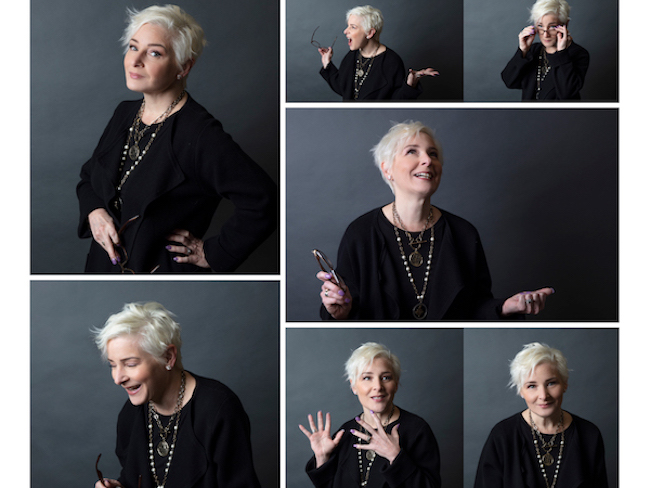On a Friday afternoon, a non-court day, Prince enters her conference room wearing jeans and a white business casual top. She offers a firm handshake and a friendly smile, conveying an air of approachability with a strong hint of confidence as she settles in to talk about her life’s work.
Prince recalls a past client who came to her in despair because she was in a complicated situation that she was worried no one would understand or believe. “Too many things she was telling me were ringing true,” said Prince, who went on to get the case resolved in her client’s favor. “It’s extremely rewarding to be able to help someone who thought nobody would be able to help them. The profound change that I was able to make in one person’s life by believing her story was a turning point and helped shape the way I practice law today.”
Prince has a unique style of representation that she says has much in common with a theater production. She approaches every case by not only formulating a theory but crafting the “story” so that she can tell it in a format that she likens to a performance. In addition to her law degree and 18 years of trial experience, she draws heavily on her theater productions in high school and college. The number one piece of advice she gives anyone who is considering a career as a trial attorney is to take some acting classes and get some experience in theater.
“I don’t know how else to approach it,” Prince said. “Say we were going to watch a TV show. How would we tell the story? The hero is always going to be my client. Then I have to figure out what facts and evidence I have to illustrate our case to the judge. Even in shorter hearings where there is no testimony, I need to be able to understand my client’s case as well as if it were about my own life. When the judge asks a question, I want to know the answer off the top of my head. As the attorney, when I am 100 percent prepared, I am indirectly sending a message that my client is prepared and on the ball. That makes a strong impression.”
By listening to and understanding the intricacies of each case, Prince creates a personal connection with her clients, fully educating them about their situation, the law, and the best possible plan of action. “I explain to them the different factors the court looks at regarding property division, separate maintenance support, and other areas of concern. I lay everything out and tailor it to their particular circumstance,” she said. “Educating our clients about what their rights are and what they’re entitled to is a really big part of what we do.”
Next, she begins the work of figuring out the narrative—how to convey their story for the best possible resolution. Having cut her teeth on jury trials and serving as a magistrate judge for seven years, Prince has honed her communication and negotiation skills, knowing how and when to present evidence without relying solely on testimony. She is never afraid to go to trial, but she also has the ability to be reasonable with the other side when appropriate. “I spend a lot of time thinking about how I want to depict this client and scripting things I’m going to say to the judge. You can tell a story in other ways too—through images, text messages, and social media,” she said.
Nevertheless, emotions run high. People going through a family law disputes such as child custody or divorce are experiencing one of the worst events in their lives, and cases become adversarial when anger, resentment, and fear are present. Anyone going through a divorce is grieving for the life they expected to have that will no longer be. “No one walks down the aisle expecting to be sitting in a divorce lawyer’s office one day,” Prince said.
The reality is that approximately half of all marriages still end in divorce. Of course, if children are involved, emotions run particularly high. Ironically, child custody issues are both the most contentious and most misunderstood.
“There are many misperceptions out there about custody that influence how litigants view themselves, including many myths about what is best for children. But societal norms are the greatest influence of all,” Prince explained. “Worrying about what other people will think can drive poor decision-making in family court, whereas we can usually come to a reasonable solution without having to go to trial.”
In our modern society, custody is handled much differently than it was 30 years ago, and laws also vary from state to state, Prince explained. “In South Carolina, we do not follow a presumption of 50 percent of shared time with the children, which many states have moved toward. Additionally, there is no legal definition of ‘standard visitation,’ although you may hear folks using this term as if it has a universal meaning. The truth is that modern studies show that children who are able to spend as much time with each parent as possible and those whose parents can continue to get along are the ones who become the most well-adjusted to divorce.”
I notice how animated Prince becomes while describing her work, which she clearly loves. However, she also says her work is intense and can take an emotional toll as well, making it difficult sometimes to leave work at the office. She laughs as she explains that she seems to have just two modes: “on or off.” On the other hand, she accepts the downside as an occupational hazard. “If I didn’t care, I don’t think I would be as effective at what I do,” she said.
Prince tries to relax by pursuing many creative outlets such as painting, drawing, sewing, and decorating. In fact, she painted much of the artwork hanging on the walls throughout her office.
At the end of the day, Prince is reminded of how fortunate she is to have a loving, supportive family. She lives with her husband Chris (a charter captain), their 12-year-old daughter Eliza, and four dogs—a Pekinese, two bulldogs and a Bernese mountain dog (the newest addition to the family). “Watching what other people are enduring can be the best marriage counseling,” she said. “The ultimate blessing is having a family that doesn’t expect me to be anything other than who I am.”
Prince Law Firm is located at 200 Central Avenue, Suite B. To learn more, visit www.bethprincelawfirm.com or call (843) 681-9000.



